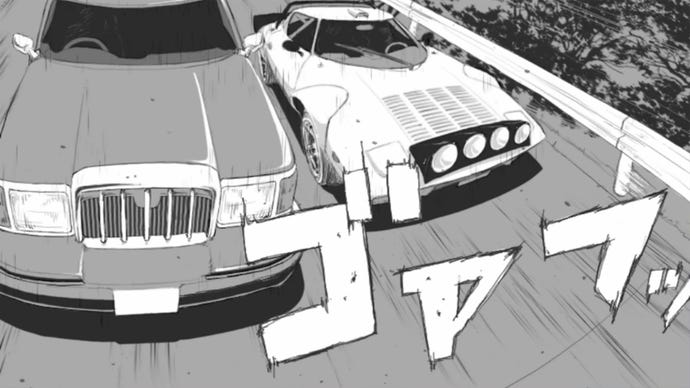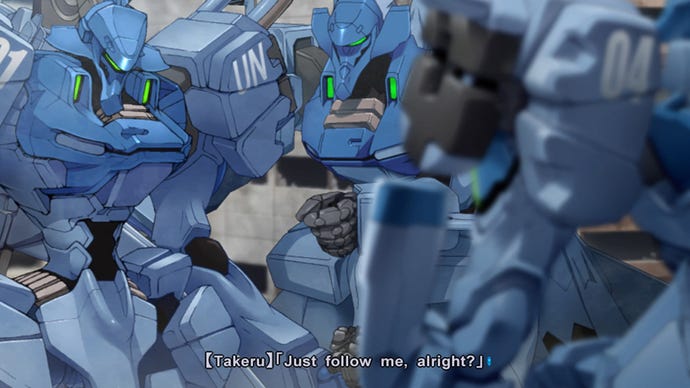
Here are some words. Some are fabricated from words in different languages, some are molded from combinations of words long dead, and some are words that already exist to which I have given new meaning. Some are words that were reaching out with tantalizing fingertips, begging to be rescued from dusty dictionaries, and some are words to which I have simply added a bit of pizzazz.
amidantino
n. a walk for a little bit with a friend along a path in the woods in contented silence.
French ami, friend + Italian andantino, a little walking. Pronounced “am-ee-dan-tee-noe.”
ataraxie
n. an understanding of your own infinitesimal smallness that makes you feel more free. Also known as ‘floating rock mentality,’ wherein the realization that we are all simply little creatures living on a meaningless floating rock empowers you to live your life according to your rules alone.
Ancient Greek ἀταραξία, equanimity or tranquility + free. Pronounced “ah-trax-ee.”
buzzy
adj. tipsy is to alcohol as buzzy is to weed—inspiring feelings of giggliness or bubbliness, as well as silly thoughts and perhaps craving for a snack.
A play on buzzed, meaning slightly drunk.
consense
Get The Herald delivered to your inbox daily.
n. goofy, unfounded, and unbridled confidence in a skill you do not have.
From confidence + nonsense.
crisple
n. the act of taking one bite of a fruit, feeling the crunch beneath your teeth and savoring that bite thoroughly, then tossing it away; it’s indulgent, tactless, even cruel. But it was a beautiful bite, and now you’ve finished.
From crisp + apple.
draíocht
n. the wizened, nostalgic, almost-jealous feeling of watching a wide-eyed child begin to believe in magic.
Gaelic draíocht, witchcraft, magic, charm, enchantment.
elitnaus
n. perverse pleasure in the conviction that you are smarter than whomever you are talking to; an ego-driven feeling, spurred by erudite hubris and a little bit of elitism.
English elite + Greek νοῦς (naus), intelligence or knowledge. Pronounced “ee-liht-nah-oos.”
entierity
n. the exploding relief of kissing somebody you've wanted to kiss for a long time; the metal-to-magnet pull between two people that was so strong it was a wonder that they ever managed the strength to prevent themselves from succumbing every second.
From French, devenir entier, to become whole or complete
etheldream
n. the moment of returning to a childhood place you thought you’d forgotten, only to find that you remember just that shade of ivory the house was painted, or how many steps lead you to the front door, or that the handle had to be twisted to the left twice to open; realizing that your soul retains memory much longer than your mind.
Old English eþel, one’s ancestral homeland + dream, Pronounced “eh-thehl-dreem.”
fêtair
v. the gleeful anticipation of knowing you have given somebody the perfect gift; hearing them tear through the wrapper and feeling your heart rise, anticipating the smile that will spread across their cheeks as they shout, “No way!” or “You remembered!” in a voice that positively bounces with excitement.
French fête, party + Gaelic tabhair, to give as a gift. Pronounced “feht-air.”
filoksenia
n. the intimacy of cooking a meal for a stranger.
From Ancient Greek φιλοξενία, friend to a stranger, hospitality. Pronounced “fee-low-seh-nee-ah.”
flaneuse
n. a female finder and connoisseur of places, who delights in stepping out of the house and onto the street for the purpose of becoming one of a vast army of anonymous trampers, meanderers, adventurers who dally along the streets, not digging deeper than the eye approves but rather briefly glancing over everything we pass as it floats us smoothly down a stream; resting, pausing, and wandering on.
From French flâneur, one who wanders aimlessly + French feminine ending –euse. Pronounced “flan-oos.”
glamhaut
adj. elegant, feminine, opulent; walking in high heels which click-clack on the ground beneath you while your chin is high because their eyes are on you and they’re seeing exactly what you want them to see: your sculpted collarbone, jaw that could cut glass, and your eyes, which do not so much as deign to look down on them.
From glamor + French haut, as in “haute couture,” meaning high fashion, or “haut talons” meaning high heels. Pronounced “glahm-awt.”
infinite
adj. feeling your hair fly above your ears because your head is poking out of the sunroof of a car flying down the highway, as if the only sounds in the world are the bass pounding at the seat beneath your feet and the wind whipping past your ears, as if you could scream as loud as you could imagine, but the sound would be left behind as soon as it flew out of your mouth, already in the past.
As referenced in The Perks of Being a Wallflower.
irid
n. the ballooning relief of having shed a secret. Perhaps the secret was dark and looming or perhaps it was festering and starting to rot, but it was a secret which has weighed heavily upon you like a great rhinoceros on your chest, and now it is gone. It has slipped away and you feel you might start floating upwards with the sudden lack of it.
Ancient Greek ίριδα, irida, goddess of the rainbow + rid, to make oneself free of something troublesome. Pronounced “eye-rid.”
jigsort
v. to set the last piece of a puzzle into its proper place.
From jigsaw + German Ort, place + to sort.
klarglee
n. the unbelievably pleasant sensation of clean legs against crisp sheets after a long day.
German klar, clean + glee, great delight. Pronounced “klahr-glee.”
limerence
n. love for a person who doesn’t exist; a precious, private, fantastical kind of love which can live, sparkling and immaculate, in your mind, unburdened with the ties that bind real-life love to the cold and unforgiving earth.
From the work of psychologist Dorothy Tennov, meaning ‘obsessive infatuation with someone, sometimes accompanied by delusions.’ Pronounced “lihm-ur-ehns.”
ludust
n. the small-smile feeling evoked by memories of your very first love who has long since turned to dust in your mind, though you still remember them when you hear a certain song, or smell apple pie.
Greek ludus, playful, young, puppy-dog love + past + dust + lust. Pronounced “luh-duhst.”
macnall tale
adj. delight in your own harmless lies, a kinder synonym for absolute and utter bullshit; a “likely story,” as your mother would say, her voice dripping with sarcasm, or if you asked your father, you’re “full of it.”
Gaelic macnas, playfulness + tall tale.
magpiance
n. the delight in a collection of objects you have amassed—perhaps a small assortment of clocks or pebbles or other eclectic trinkets.
From magpie, a small black bird famous for its love of collecting. Pronounced “mag-pie-ants.”
melliflux
n. a state of artistic ‘flow’ wherein one’s hands seem to move of their own accord, wild and graceful, as if your artwork and your hands are working with one mind, talking back and forth to each other in a language your mind does not speak, so you must watch with delight from above as they commune.
From mellifluous, sweet sounding and smooth + flux, steady and continuous stream
mirread
v. to read a piece of writing and recognize yourself reflected back, to feel seen and known by an author long dead.
From mirrored + read + myriad. Pronounced “meer-eed.”
piggle
v. when you laugh so hard and so hysterically that you pee a little.
From pee + giggle
plasconder
v. to long for spaces that speak to the spirit, spaces that hide the hider themselves (these are places that are small and snug and well-tucked in, secret and quiet and almost intangible, places that are unobservable, yet from which one can observe perfectly well).
From place, a portion of space, a home + Spanish esconder, to hide. Pronounced “play-skon-der.”
punleasure
n. delight in a particularly clever bit of word-play.
From pun + pleasure
quilia
n. a particular care for somebody you love when they are asleep, their face so uncreased and childlike that you want to tuck them in and gently brush their hair back from an impossibly smooth forehead.
From quilt + Greek ϕιλία, (philia), familial love
sensukia
n. a feeling of yearning which inexplicably brings us closer to that place where joy and sorrow meet; the feeling after you wish on an eyelash, or in the middle of a game of “she loves me, she loves me not.”
From German sehnsucht, yearning; wistful longing. Pronounced “sehn-sue-kee-ah.”
sollevato voce
n. the feeling that, while you sing, your voice is rising and lifted by the voices around you, and you are lifting them in turn.
Italian sollevato, lifted + voce, voice. Pronounced “soll-eh-vah-toe / voe-chay.”
suistalgia
n. the realization often experienced while looking at your own reflection in the mirror who seems somehow older than you did just yesterday—of what your younger self would think of you now; specifically, that they would fall on the floor in awe of who you have become, that they would be jaw-droppingly stunned by your clothes and your hair and just how grown-up you look, even though you still share the same smile.
Latin prefix sui, meaning self + nostalgia. Pronounced “soo-ee-stahl-gee-ah.”
terrarific
n. delight in being covered in dirt.
Latin terra, earth + terrific.
unwelsh
n. the feeling of being weightless, almost nihilistic, as if you’ve taken a bra off after a day which felt particularly happy and are naked in your bedroom with the windows open.
German Weltschmerz, world-weariness, + unleash, pronounced “uhn-wehlsh.”
vêtemots
n. a kind word, said by a passerby, about something you’re wearing—the article of clothing, of course, will be forever endowed with the power of that compliment and will therefore become something more than it was before. I’ll never wear that scarf again without thinking of that seven year old on the T who told me I looked like her favorite doll.
French vêtements, clothes + French mots, words.
wynnsome
adj. bouncing, childlike, or perhaps puppylike in one’s bright excitement, joyful like a chanted nursery-rhyme while jump-roping in overalls over steaming blacktop.
From Old English Wynn, delight or joy, + winsome, pleasing and engaging often because of a childlike charm and innocence. Pronounced “wihn-suhm.”







:format(webp)/cdn.vox-cdn.com/uploads/chorus_asset/file/24563313/RE4_Luis_Sera_01_png_jpgcopy.jpg)
:format(webp)/cdn.vox-cdn.com/uploads/chorus_asset/file/24563322/RE4_Ganados_01_png_jpgcopy.jpg)
:format(webp)/cdn.vox-cdn.com/uploads/chorus_asset/file/24563324/RE4_Leon_and_Luis_png_jpgcopy.jpg)